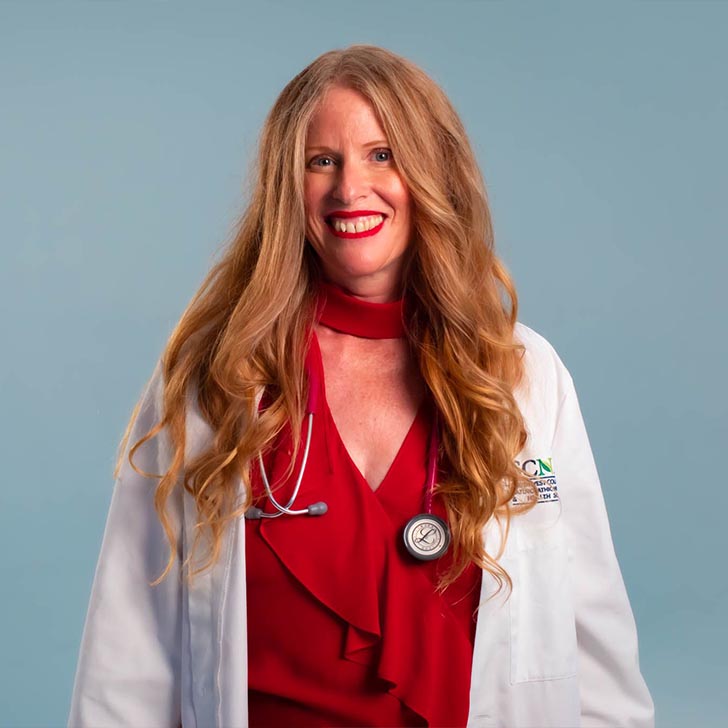Join the discussion below

Dr. Sharon Stills, a licensed Naturopathic Medical Doctor with over two decades of dedicated service in transforming women’s health has been a guiding light for perimenopausal and menopausal women, empowering them to reinvent, explore, and rediscover their vitality and zest for life. Her pioneering RED Hot Sexy Meno(pause) Program encapsulates... Read More

Dr. Rodger Murphree is a chiropractic physician and board certified nutritional specialist. He is an internationally recognized fibromyalgia expert. His “Murphree Method,” a combination of functional and orthomolecular medicine, has helped thousands of patients get healthy and feel good again. He’s the author of 3 books for patients and doctors including... Read More
- What is fibromyalgia?
- What causes Fibromyalgia?
- What can be done to overcome fibromyalgia?
Dr. Sharon Stills
Hello, ladies, and welcome back to Mastering the Menopause Transition summit. It’s me. It’s your host, Dr. Sharon Stills. I know the background looks different, but I am filming this today while I am on vacation, so I do not have my normal setup behind me. But it’s still me, and I’m still excited to be here, and we’re gonna have a great conversation today with my guest, who’s Dr. Rodger Murphree. He’s a board-certified chiropractic physician and board-certified nutritional specialist. He’s the author of not one, not two, not three, not four, but five books, that’s amazing, for doctors and patients, including “Treating and Beating Fibromyalgia and Chronic Fatigue Syndrome.” And that is what we are gonna be chatting about today. So welcome. It’s great to have you here in the summit.
Dr. Rodger Murphree
Well, I’m delighted to be here. I think it’s gonna be a lot of fun. I really look forward to spending some time with you and your audience.
Dr. Sharon Stills
Yes, me too, because I think that fibromyalgia doesn’t get enough attention, and so often in the traditional world, fibromyalgia is just thought of as this disease of it’s in your head, or disease of we can’t figure out what’s wrong with you. And so I know that there must be many women listening who are struggling with fibromyalgia, and I wanted to bring you on so we could speak to them, give them hope, give them information to know that there are things you can do, and it is not something you have to just live with.
Dr. Rodger Murphree
Well, yeah, exactly. So unfortunately, here we are in 2022, and fibromyalgia was put on the map in 1990 by the American College of Rheumatology. Although it’s been around for a couple of centuries. I mean, there’s writings about fibromyalgia that go back generations. But 1990, the American College of Rheumatology actually came up with the criteria to get the diagnosis of fibromyalgia. So we’re talking 32 years ago. And yet, Sharon, what we see still today is there’s many doctors who don’t acknowledge that fibromyalgia is a real entity. And there’s a lot of folks who don’t know what fibromyalgia is, and we’ll talk more about that, what it is. So there’s a lot of confusion, misinformation, and I think those who have fibromyalgia really have a lot of frustration that goes with this diagnosis.
Dr. Sharon Stills
Mm, so let’s just, let’s do it. So what is fibromyalgia? What are the criteria? How’s it diagnosed?
Dr. Rodger Murphree
Well, fibromyalgia is a syndrome. So people may have heard something like irritable bowel syndrome, which a syndrome is a group of symptoms that people have in common, and then we give it a name. So in the case of irritable bowel, it’s bloating, gas, stomach pain, loose bowel movements, constipation. And we call that irritable bowel syndrome. Fibromyalgia, the common symptoms are diffuse, achy, sometimes disabling pain, exhaustion, poor sleep, restless leg syndrome. Irritable bowel is very, very common. Brain fog is another one. And with so many symptoms, it’s not unusual to see a lot of these folks who get so run down, they have mood disorders as well, anxiety and depression. It affects women, primarily between the ages of 30 and 50. It’s about 95% of the folks who have fibromyalgia are females. It’s estimated that somewhere between 4 and 8% of the U.S. population, adult population, has fibromyalgia. Worldwide, the estimates are somewhere between 6 and 8%. So it’s an illness that is everywhere. It’s not just here in the United States. It’s worldwide. And I believe we’re gonna see those statistics, those numbers are gonna grow, largely due to what we’re seeing with long-hauler symptoms. People are now starting to develop symptoms very similar to fibromyalgia.
Dr. Sharon Stills
Mm, so do you, well, I guess before I even ask you any questions, how did you get so involved in making fibromyalgia one of your specialties? Is there a story behind that?
Dr. Rodger Murphree
There’s a story. And as a chiropractic doctor I was happy, you know, I’ve been in practice 32 years, which every time I say that, it’s crazy. But for 32 year, I mean, for 10 years, the first decade of my practice, I was happy seeing hands-on type of patients with migraine headaches and disk pain and carpal tunnel and low back pain, that kind of thing. But I was always interested in functional medicine, even before we called it functional medicine, you know, nutritional medicine, and was a Jeffrey Bland fan, kind of the father of functional medicine. And I would just share these things with my patients while I was doing hands-on chiropractic care with them about, you know, you need to change your diet. And they would start sharing, asking me questions about symptoms they had. And they were looking for somebody to go to other than conventional medicine, either because they were a medical misfit, nothing was working in conventional medicine for them, or they were just looking for a more natural option. And I started sharing with them about yeast overgrowth and food allergies and why your thyroid tests are probably not accurate, ’cause you’re not getting the right test. So we started looking at new thyroid stuff.
And I had a patient that came to me, Sheila Jones, and she had recently been diagnosed with fibromyalgia. I had never heard the term. I didn’t know what it was. And she started sharing with me all these symptoms that she had. Now, this is a woman very well dressed, very well put together, 36 years old. And I’m hearing all these symptoms and everything she’s describing to me, and I’m thinking, she’s a hypochondriac. And I wanted to be nice, so I’m listening to her. But you know, I tell you, Sharon, them more I listened to her, I realized, why would she make all this up? I mean, I knew her from a referral. I knew her family, and I knew of her family, and I knew she had a great job. I knew her husband from playing tennis. And I knew she had wonderful kids. I kind of met her kids. So I knew a little bit about her before she came to see me. It just didn’t add up. So I started sharing with her some nutritional things to do, did some testing on her, found that she had some different things going on, problem with her thyroid, food allergies, yeast overgrowth, leaky gut, some things that we see in our practice. And I was able to get her well in three months. Now, those of you that have fibromyalgia that are about to click off, don’t, because they’re not always like that. That was a rarity. And I quickly learned how naive I was thinking that I had all the answers for fibro. I certainly did not. And 22 years later, I still don’t. But what happened, once she got well, or overcame her symptoms, I just got bombarded with referrals here from the medical community here in Birmingham, Alabama, because they didn’t know what to do with these folks that had fibromyalgia.
So I either had to sink or swim. I mean, I had to do something. I’d lay awake at night thinking, oh my gosh, Sally is coming in, and she’s got this, this, this, and this, and this symptom. Does she have a brain tumor? Does she have this, does she have that? And they were so complicated. So I spent the next two or three years really just traveling around, stealing, begging, borrowing any kind of information from practitioners like yourself that are kind of on the cutting edge that were working with the underlying causes of the symptoms that we saw in fibromyalgia. And I started having some consistent success, and one thing led to another. I had a very large integrative medical practice with five medical doctors, and we had patients that came to us from all over the Southeast. But really what interested me even then was fibromyalgia, ’cause no one was really having any success. And so in 2003, I sold that medical practice, wrote a book, “Treating and Beating Fibromyalgia and Chronic Fatigue Syndrome.” Went on a book tour that took me all over North America. You name a city, I was there over about a three-year, four-year period. And then that’s what it’s turned into, a telemedicine practice where I work with patients all over the world.
Dr. Sharon Stills
Wow, I love that, and I’m smiling ’cause I’m thinking, isn’t that the case for a lot of us? That’s how I ended up treating oncology patients. It was one patient who came with pancreatic cancer, and he got better, and then everyone came. And I had gone to school to be a pediatrician, and before I knew it, I was an oncologist, a naturopathic oncologist. And so it’s kind of like we have ideas, but the patients come and the universe takes over and kind of guides our course for us and who we’re meant to help. So I love that story. That’s a great story. So okay, so now that we know that, let’s go back and start to talk about, so, what are the things that you have found, what do you see? And when you talk about that age range, that 30 to 50-year-old age range, that is an age range, I know we’re talking about mastering the menopause transition, so lots of you on here are probably older than 50, like myself. But I’m hoping that there are women who are on here in their 30s, their 40s that are learning about how to balance their hormones and things of that nature so their transition is easier, and that is the age range you talked about.
And so if you’re watching and you know someone who’s in that age range who isn’t watching ’cause they think this is not applicable to them, grab them, give them the link, get them in here so they can learn too, because that’s the goal is to teach and educate and give knowledge to women of all ages so that their hormone journey is beautiful at any age. So what is it that you see, because that age, especially from 40 to 50, we see a lot of these perimenopausal symptoms that are similar to what you just described.
Dr. Rodger Murphree
Well, I think it’s important to point out that I have a wide range of patients, as young as 10, can you believe that, and as young as 81. So you can be anywhere in that, you know, on that gamut. But primarily I see patients between, probably between 40 and 70 is probably most of the patients that I see. But obviously the question is if it’s 95% of the people who have this that are females, obviously there’s gotta be some type of hormone issue, right? And that’s what we see in fibromyalgia. It’s a neural hormonal dysfunction, so it’s a dysfunction between the nervous system and the hormones. And we see this play out in many ways, but in fibromyalgia, what happens is these individuals, they get under too much stress. And I talk about type A’s and the type B’s. So type A’s are the doers. They do, they do, they do, they do, they do. Ah, and then one day, they’re just done out, right? And then you have the type B’s, these are the caregivers. So they give and they give and they give, and they give and they give, and one day, they’re given out. So I have a lot of patients that came from a very traumatic childhood.
Maybe it’s very stressful. It could be from some type of abuse, whether that’s mental, physical abuse. But it could be that they had an illness growing up as a child, or they were in a very toxic household, or they moved around a lot. Maybe they were a military family. But what we know of fibromyalgia is that oftentimes when you come up from that environment, you lose your plasticity to stress. So as you go through life, you find that stress becomes harder and harder to rebound to. You and I, we’re type A’s, we’re stress, stress, stress-oriented, and we thrive on it, we can deal with it. But some of these folks, unfortunately, they get under too much stress for too long, or they have something that comes along, a surgery. A hysterectomy is very common, by the way, that triggers fibromyalgia. But it’s the straw that breaks the camel’s back, and they’re never the same. It’s a dysfunction of the hypothalamus, pituitary, and adrenals. The hypothalamus, as you know, is just a cluster of nerves that really help regulate the different systems in the body.
So it regulates our sleep-wake cycle, our endocrine, our hormones, our immune system, our digestion, our elimination. And when it gets out of whack, which it gets under too much stress, these different systems that it’s supposed to monitor and make adjustments for, it stops working, so now we start to see problems with things like adrenal fatigue. And as your audience probably knows from this summit, the adrenal glands, one of the things they do, besides making cortisol, they also make progesterone. And if you get under too much stress and you start to develop this thing called adrenal fatigue, ’cause your adrenal glands can’t keep up with the stress, now you start to see your progesterone levels go down. And then many of my patients develop a thing called estrogen dominance, which I know the audience I’m sure has heard about on this summit. It’s very common to see my patients have a history of ovarian cysts and endometriosis. It’s very common to see them in perimenopause struggling really to balance those hormones that are oftentimes being triggered by all the stress that preceded these hormone dysfunctions.
Dr. Sharon Stills
Mm. It always goes back to stress. It always goes back to stress. So for the women listening, do you recommend they evaluate their adrenal glands? Do you typically set adrenal fatigue? So do you typically see their cortisol levels are burnt out, or do you see they’re high and they’re still excreting kind of stuck in that hyper-excretion phase?
Dr. Rodger Murphree
So the adrenal glands, for those have not heard that term, your adrenal glands, these small little glands that sit on top of your kidneys, but they’re very powerful. They help us with inflammation, mental clarity, physical energy. There’s a balance, you gotta have a balance. If you get too much, it can suppress your immune system, but you need enough to keep your immune system working like it’s supposed to. It allows us to have stamina and resiliency to stress so we’re able to navigate stress when we come into contact with it. And the adrenal glands release two key hormones. One is cortisol, which helps you handle long-term stress. And then the other one is norepinephrine or noradrenaline, which adrenaline, which we have released when we get under immediate stress. And as you so mentioned in that question, you can be, you know, you can have too much cortisol or you can have too little. So what we see in the fibromyalgia community is oftentimes they have too much cortisol that can create a lot of different problems, including suppressing the thyroid. But eventually that goes away. And when that drops down, now we see that they develop adrenal fatigue ’cause they don’t have enough cortisol. And if it gets bad enough, now they suppress the other key adrenal hormone, DHEA, which then affects the sex hormones.
Dr. Sharon Stills
Mm. Yeah, I see that, too. And I think that’s a huge misconception. At least, I know it is with a lot of the patients I work with, that they come in thinking they can only have high cortisol, and they don’t realize that at some point your body gets tired and can’t produce the cortisol anymore, it can’t respond, and then your cortisol levels plummet, and then so I run four point cortisol salivary samples, and you just see this flat line. And they actually need some bioidentical cortisol to rejuvenate and to help the adrenals learn how to get back on. So it sounds like you see the same thing. And so that’s why I think it’s so important for everyone listening that you get your adrenals properly evaluated and don’t just guess, ’cause you could guess wrong. It’s very easy from your symptoms to think one thing when it’s another.
Dr. Rodger Murphree
Yeah, and I think that’s a real key if you look at the adrenal fatigue. And of course you and I practice functional medicine, you as a naturopath, me as a chiropractor, but we both do this thing called functional medicine where we’re looking at root causes. And you know, if you, you know, the question to often asked is what causes fibromyalgia, and I share stress, and then a lot of people just kinda roll their eyes. But you know, if we’re being candid as physicians, we would say that 95% of all illnesses out there are driven, caused by stress and inflammation. And it doesn’t matter what name we give to it. With fibromyalgia, really, fibromyalgia syndrome is just a name, it doesn’t cause the pain, it doesn’t cause the low energy, it doesn’t cause the brain fog, it doesn’t cause irritable bowel or restless leg syndrome, or any of the common symptoms, which are just warning signs that something’s off in the body. It doesn’t cause any of the things. It’s just a name given to describe them. And so really for somebody who is struggling, whether you have fibromyalgia or you have chronic pain or you have fatigue or you have poor sleep, the question you should be asking is what’s causing that. So in this summit, obviously we’re talking about estrogen dominance or low estrogen or low progesterone or balancing these sex hormones. But in fibromyalgia, really the key hormone that’s lacking for these individuals to start this whole thing is serotonin.
So the brain chemical serotonin, the happy hormone, anytime we get under stress, our body’s releasing this brain chemical to allow us to deal with the stress. And stress can be real and it can be imagined. Your body doesn’t know the difference between sitting in a scary movie and getting a phone call from the IRS. They’re both just as real, right? One’s probably a little more scary than the other, right? But once you get low in serotonin, now you start to develop the symptoms we see in fibromyalgia. Low pain threshold. So those with fibromyalgia have a condition called allodynia where their pain threshold is lower than the average person. So their pain goes up. It doesn’t matter where that pain is coming from. That pain is registered much more intensely than it should be. And that has to do a lot with the neuro-hormonal disruption. But the higher your serotonin level, the higher your pain threshold, so the less pain you have. The higher your serotonin level, the happier you are, less anxious you are, less likely to have irritable bowel. You have more serotonin receptors in your intestinal tract than you do in your brain.
And so that’s why when you get nervous, you get butterflies in your stomach, right? So serotonin controls how fast or how slow food moves through your intestinal tract, the motility and the peristaltic wave. And it is no wonder that 70% of the people who have fibromyalgia also have irritable bowel. So I mentioned our stress coping glands, the adrenal glands. Those get under too much stress over a period of time and quit working like they’re supposed to. But we’re also, and I use this example, we’re all born with a stress-coping savings account. And in this stress-coping savings account, we have chemicals that allow us to deal with stress. One of the key ones is serotonin. But we also have other brain chemicals like dopamine and norepinephrine and GABA. And then we have cortisol and DHEA, which we mentioned. But also vitamins, like pantothenic acid, B5, which is the anti-stress vitamin.
Magnesium, which is a big one. Anytime we get under stress, our body is releasing these chemicals to allow us to be able to deal with the stress. And then hopefully we get enough rest, and we make more, you know, make deposits into our stress-coping savings account. But Sharon, what we see in fibromyalgia is these individuals have made more withdrawals than they have deposits. And so eventually they bankrupt their stress-coping savings account. Now stress becomes magnified. Changes in the weather, bright lights, loud noises, you know, going out with friends, even thinking about making plans to go out with friends can really set them off because they’ve depleted these stress coping chemicals, and they’ve also, you know, have dysfunction adrenal glands, so they’re deficient in cortisol and DHEA. And so it’s this vicious cycle that they get into. And this creates inflammation and pain.
Dr. Sharon Stills
A lot of things there. So I wanna circle back to some of them. Stress, so because you’re a chiropractor and because I love chiropractic, and we haven’t really talked about chiropractic, ’cause we think of stress as like, ah, stress, the bills are coming, the phone won’t stop ringing, the light won’t turn green. But stress can be structural, it could be chemical. Can you talk a little bit about chiropractic and the stress of not being properly aligned?
Dr. Rodger Murphree
Well, it’s interesting, I just finished up a fibromyalgia summit, and one of my guests was another chiropractor who talked all about your posture and how your posture affects the stress that then radiates throughout your body. And just by changing your posture, you can actually change the amount of stress and tension that you see, that you’re feeling inside of you. Unfortunately, the thing with fibromyalgia is they have this condition called allodynia, which means low pain threshold, as I mentioned earlier. Pain is magnified, and they have central sensitization pain syndrome, it’s a mouthful, which means that their nervous system is hyper-alert. So it’s hyper, it’s more active than it should be. And because of that, those with fibromyalgia don’t handle tactile sensations, so they don’t handle a lot of hands-on, you know, you can’t hug them. A lot of times they can’t wear a tight blouse or have tight covers in their bed.
A handshake may set them off. And so hands-on therapy for these individuals, whether that’s chiropractic or PT or even massage, unless it’s very gentle, like myofascial release massage, preferably by somebody trained in the John Barnes method, it can really set them off. And so when people ask me, oh yeah, do you work on your fibromyalgia patients hands-on? Well, now my practice is all telemedicine for the last decade, but even 10 years ago when I was seeing fibromyalgia patients, I didn’t do a lot of hands-on. I had to be very, very careful. But you mentioned stress, and I wanna point out that you’re so right, is that stress comes in many different layers and flavors, and the body is always under stress. Stress, we’re building up cells and bones and tissue, and then we’re breaking it down. I mean, that’s life.
But one of the things that we see in fibromyalgia is they have less mitochondria than the average person, and the mitochondria that they have oftentimes are dysfunctional. And the mitochondria are the power plants of the cells. So once we start to see a disruption in their performance, or we have less than we should, that creates all sorts of stress in the body, including oxidative stress and free radical damage, which generates inflammation and pain. So yes, we can talk about emotional stress, ’cause trauma plays a big role for a lot of these folks, as we see in chronic illness across the board for people who have experienced trauma earlier in their life. Emotional stress, physical stress, biochemical stress, stress from foods and drugs that they’re taking inside their bodies that their body’s saying help. So there’s all kind of stressors. And when people hear me say fibromyalgia is largely caused by stress, a lot of times, those with fibromyalgia, they’re insulted by that, and they need to realize that stress has many different flavors, right?
Dr. Sharon Stills
Yeah. And I think if we’re alive, we have stress. And so there’s nothing to be embarrassed about or ashamed about for having stress. I think we get rid of stress when we die. And until then, when we’re playing the human game of life, there’s gonna be stress, and it’s just learning how to sit with it, how to embrace it, how to respond rather than knee-jerk react to it. And so I think when we think about illness as a gift, which sometimes sounds weird, but to me, it truly is, that fibromyalgia can be giving you this gift of saying, you have to take a deep breath. You have to look at how you’re going through your life and how you can redo things to allow more space, to allow things to flow, to allow the pain to decrease. And when you talk about serotonin, it just makes me think about the connection with estrogen and the hormones. And so it’s such a, we call things, and I always tell patients I wanna hear what your diagnosis is, but it doesn’t really concern me. I could treat you blindfolded without a diagnosis, because we need to just see where the imbalances are on every level. And so what is your experience with fibromyalgia? You balance the sex hormones, you decrease the stress, you’re supporting the adrenals. What else are you doing? What are the other big things you see?
Dr. Rodger Murphree
Well, so for what I see, because it’s the HPA axis, is that the sex hormones usually are downstream. They’re usually, the symptoms are not being driven downstream, they’re being driven upstream. And if I can fix these things, then usually the estrogen, progesterone, testosterone levels balance out. Now, that’s not always, and I would say that it’s quite often that I will refer a patient out to get on bioidentical hormone replacement therapy if needed, but before I do that, I wanna focus on what are the key triggers. And really, as I mentioned, with these individuals, they’ve bankrupted their stress-coping chemicals, so we’ve got to get that savings account built back up. And the way that we make deposits into our stress-coping savings account is deep, restorative sleep on a consistent basis. ‘Cause that is where the body is repairing itself. It’s releasing these hormones. It’s getting toxins out of the brain. It’s the only time it can do that. It’s repairing damaged tissue. And every time we go into deep, restorative sleep, our body’s filling up our stress-coping savings account with these chemicals. So the next day, when we encounter stress, we can handle it.
But if you’re not getting that deep, restorative sleep, you’re at risk of bankrupting your stress-coping savings account and developing symptoms. Doesn’t even need to be fibromyalgia. But if you think of about any, when anybody asks me about a chronic condition, what’s the first thing I would recommend they do? Get deep, restorative sleep on a consistent basis. ‘Cause we know if you’re not, then you increase your inflammatory chemicals by 40%. Now, that’s pretty significant. But if you realize, as you and I, treating patients the way we have for a number of years, we know everybody has inflammation. So as Jeffrey Bland calls them, the walking wounded, you might not be in the emergency room today or at your clinician’s office tomorrow, but most people are not very healthy, and they’re carrying around a lot of inflammation. And then you increase that by 40%. We know if you’re not getting deep, restorative sleep and you’re low in serotonin, you’re more anxious, you’re more likely to be depressed, more likely to have mental clarity issues, and more likely to have irritable bowel. And obviously if you’re not sleeping well, you’re gonna be tired.
So you’re gonna be tired, gonna have pain, gonna have problems with your digestion, problems in your mental clarity, more likely to have restless leg syndrome. These are all the symptoms we see with fibromyalgia. So the first place to start, whether you have fibromyalgia or any chronic illness, in my opinion, doing this for 22 years, is reestablishing deep, restorative sleep, and recognizing that no one has a sleep drug deficiency. And not, I mean, there’s a time and there’s a place, and I’m not gonna step on anybody’s toes. But we do know that sleep drugs increase your risk of death by fivefold across the board. It doesn’t matter what it’s due to, cancer, heart disease, you name it, sleep medications increase your risk of death. And that’s not to scare you. It’s just to encourage you to start thinking about what are some natural options to help you get into that deep, restorative sleep.
Dr. Sharon Stills
So I always say sleep is our super power, but I’m sure there’s some ladies watching saying yes, yes, I want the deep, restorative sleep, but I can’t sleep. So what are some suggestions you have for the listeners who get it, who wanna sleep, but just aren’t able to?
Dr. Rodger Murphree
Well, sleep hygiene is key. So there’s, we don’t really have time to go into a whole bunch of that, but sleep hygiene, making sure you’re winding down before you even get into bed, you know, two hours or so before you get into bed. Turning the lights down. The bedroom is for intimacy and relaxation. That’s it. You shouldn’t be working in there. You shouldn’t have a computer in there. You definitely don’t need to be reading your phone, you know, picking your phone up in the middle of the night, check your email, like people do. Your wifi needs to be turned off. You need to have, the room needs to be as dark as it can be because any, just a minuscule of light, once it hits the retina, whether it’s open or closed, it hits the pineal gland, which regulates our sleep hormone, melatonin, and you can sabotage yourself. But for fibromyalgia, the key really is serotonin. And you need this high level of this brain chemical called serotonin to help you get into that deep sleep. Now, some people, when they think of serotonin, the happy hormone, they think of Cymbalta and Savella and Prozac and Trintellix, you know, Lexapro.
There’ll be a new one next week. You know, there’s always a new antidepressant. They’re all the same. They’re really basically a gasoline additive. So those medications don’t make serotonin. They only help you hang on to the serotonin that you have. But if you’ve bankrupted your stress-coping chemicals and you don’t have any serotonin, it’s like using a gasoline additive in an empty gasoline tank. It’s really not gonna do much. And then we know that 70% of the time, an antidepressant is no better than a sugar pill if you look at the meta-analysis of the studies. And that’s not to tell anybody to stop your medications. Don’t do that. They may be helpful for you. But just realize that over a period of time, these medications cause you to develop a thing called down regulation, and you have less and less receptors for these antidepressants to bind to, so they really do quit working. Where does serotonin come from?
You obviously know. Serotonin comes from an amino acid called tryptophan, and amino acids make up protein. So anytime you eat protein, whether that’s a hamburger patty or handful of cashew nuts, those proteins have amino acid building blocks that make that particular protein. Tryptophan we should get in our diet. Our bodies, you can’t make it. So it’s called an essential amino acid. Unfortunately, there’s many folks that cannot take the tryptophan that they get in their diet in the food and turn it into the active form called 5-hydroxytryptophan. So genetically, just the way God made them, or there’s poor diet, or other issues, that doesn’t happen, so they develop these serotonin deficiencies. You can get 5-hydroxytryptophan over the counter. You can walk in the health food store and get it. So 5-HTP combined with the right B vitamins and magnesium and vitamin C is what makes serotonin. So rather than taking a gasoline additive, or even taking a sleep drug, again, you gotta have some common sense. Don’t stop your medications without working with somebody. But 5-HDP, with the right combination, that makes serotonin, but it also increases your natural sleep hormone, melatonin, by 200%. So for fibromyalgia, that’s where we start. For those who don’t have fibromyalgia, but may have low moods or find they have kind of chronic, achy kind of pain, or feel irritable, or feel kind of anxious, you may have a low serotonin state and supplementing with 5-HTP and a good multivitamin could allow you to raise that serotonin level and to be able to get a good night’s sleep.
Dr. Sharon Stills
Mm, yeah, I think it’s, I’m glad that you brought it up because when we think of things biochemically, a lot of times, we don’t have the co-factors, like you mentioned, the magnesium, the B vitamins, vitamin C, and so we could be taking something and our body is not utilizing it. And so it’s really good. I finally found a lab that I like and trust for neurotransmitter testing. And it’s interesting to test, because often I see things in the test and I’m like, wow, I don’t know that I would’ve realized that just guessing. And you know, whether it be a dopamine or glycine or PEA or serotonin and so forth. And so I do think that neurotransmitters, you can do a lot of it, I think, neurotransmitters, you can think of it symptomatically also, like you were mentioning some of the signs of low serotonin. Certainly getting outside and getting sunshine is really getting your feet on the ground. These are all things that will help support your serotonin. But I think that’s such an important piece of just reminding us that we need to sleep, and we are not deficient in medications.
And so, I mean, I never, even though I can, I never prescribe them. I know some patients will take them if they have an acute trauma, someone dies and they’re not sleeping and they take it for a week. And I would prefer, if they would’ve asked me, I would’ve given them something else. But you know, short-term use, but these medications are really just developed for that short-term use. They’re not developed to be on for a year, 5 years, 10 years, and so if you are on those medications, like Dr. Rodger says, don’t just stop. There can be ramifications, negative ones. But find someone who can help wean you off while looking and seeing what the underlying cause is so that you can be getting sleep. And I feel like we have to talk about the thyroid. I remember being in medical school and a teacher saying fibromyalgia, you always have to look at C3 levels. This is like early in my career, but it stuck with me. So I’d love to hear you just speak a little about the thyroid.
Dr. Rodger Murphree
Yeah, absolutely, so I’ve mentioned this disconnection between the nervous system and the hormones. And one of those is thyroid. So I mentioned the HPA axis. So part of that axis’ role, the hypothalamus and the pituitary is to regulate thyroid function. Anytime you get under too much stress, you run the risk of compromising your thyroid function. I find in my practice about 70% of the people I work with have a problem with their thyroid that’s never been properly diagnosed, or it’s not being properly treated. And a lot of my patients have a thing called Hashimoto’s thyroiditis, which is an autoimmune disease where the body is erroneously attacking the thyroid tissue. And oftentimes people will have all the symptoms of low thyroid, fatigue, diffuse, achy pain, nerve pain, tingling in their hands and feet, cold hands and feet, dry skin, brittle nails, constipation, anxious, low moods, brain fog, losing your hair, losing the lateral third of your eyebrows. These are all symptoms that are oftentimes very common in someone who has fibromyalgia. And, you know, then you ask, well, which came first, the chicken or the egg? So was it the low thyroid that generated all this? Or was it the stress, initial stress that then led to poor sleep, and then led to pain, which led to adrenal fatigue and not being able to handle stress, becomes even more magnified. And you get in this vicious cycle. And then before you know it, now your thyroid’s compromised. So who knows, but that’s a great question. Thyroid is a very common problem for fibromyalgia. Absolutely.
Dr. Sharon Stills
Yeah.
Dr. Rodger Murphree
And so many people are getting just really basic testing done, and because of that, they’re being missed. They’re not getting diagnosed correctly. Yeah.
Dr. Sharon Stills
Yeah, so it sounds like, for those listening who have either been told you have fibromyalgia, or just can relate to the symptoms, that you need to really get evaluated for stress, for your adrenals, for your thyroid, for your sex hormones, because chicken or egg, and what’s going on with you, it’s all a big symphony, and you don’t want to just look at one thing and not look at the others. Like if you treat the thyroid but you don’t support the adrenals, you stress the adrenals and drive them, you know, I always look at it like the seesaw. Thyroid goes up, adrenals can go down if you’re not supporting them. And so you have to really be looking at it holistically, which is what we recommend always.
Dr. Rodger Murphree
Absolutely. Yeah.
Dr. Sharon Stills
I also love, I do a lot of like magnesium, B6 intravenously. For those of you listening who you just need some quick relief, it could be really effective to just flood your body, and especially if you have, like Dr. Rodger said, you’re having irritable bowel problems, and your gut is compromised sometimes when you’re taking things orally, you might not absorb them as well. So just another thing to be thinking about and asking your physicians for when you’re on your search for relief.
Dr. Rodger Murphree
Yeah, so years ago, when I had that medical practice, we did intravenous IV therapy, did Myers’ Cocktail, which back then we didn’t, no one even knew what that was, ’cause this was in 2000, so I mean, that’s what, 12 years ago. And what we found is that people got these high doses of vitamins and minerals, that they’ve had less pain, they had more energy, they slept better, their moods were better, they just felt better. The problem was is that we had patients coming from all over the Southeast. And so they may drive 2, 3, 4 hours to see us. Or some would fly in, too. But it was just impractical to have them come every week and get hooked up to an IV. And so years ago I developed a formula that really kind of brought it all together, with very high doses of vitamins, minerals, amino acids, and essential fatty acids. That combination is really what saturates the cells and allows the hormones to be able to even have the raw ingredients that they need to work correctly. So many people, and that’s another thing, to replenish your stress-coping savings account, you really need to have these high doses.
And these doses may be a thousand times stronger, 5,000 times stronger than what you would find in a Centrum Silver or One A Day, you know, some of these things that you get at Walmart. Those are based on the recommended dietary allowance, which is probably what, 60, 70, years out of date. I call it the recommended disease allowance. Because it just keeps you from getting beriberi or scurvy, and that’s it. But it’s not gonna make a difference. So one of the challenges that I had early on, and one of the main reasons I wrote the book, it’s now in the fifth edition, sixth edition will be out this year, was that when I would start talking about vitamins and minerals could actually help and reverse fibromyalgia symptoms, people wouldn’t believe it, because they had been on the medical merry-go-round in the conventional medical system to where it was all about whatever symptom they had, the goal was to suppress the symptom. The problem though with fibromyalgia is there’s so many dadgum symptoms, you know? I mean, if you’re not careful, you can be on half a dozen drugs before you know it.
And that’s how most of my patients are. I mean, they’re on a drug to put them asleep, they’re on a drug to wake them up, they’re on a drug to speed them up, they’re on a drug to slow them down. And every prescription drug has potential side effects. And what we know in the case of fibromyalgia is that long-term use of the common drugs used in fibromyalgia, whether that’s Lyrica, Gralise, Neurontin, Savella, Cymbalta, it doesn’t matter. Ambien, Klonopin, Ativan, Doxepin. The list can be rather long, but they long-term don’t yield long-term positive results. In fact, they create more problems. And that’s not to step on anybody’s toes or to make anybody feel bad if you’re taking those medications, or to bad mouth your physician. They’re really trying to help you. They just really don’t know what to do with you.
Dr. Sharon Stills
Yeah, I think a good, I’m glad you brought that up, ’cause a good exercise, if you are on medications, often they’re depleting the nutrients that you need that we’re talking about, the magnesium, the B vitamins. And you can go to Dr. Google and just put in what I’m, you know, what nutrients does Cymbalta deplete, and you can see. And so then it’s good to go work with someone and get your levels tested appropriately in the right way and see what you need, and then whether getting off that med is a possibility for you. I think that’s really important. And that’s great that you made something orally for people who nowadays, ’cause I mean, we’ve been doing IVs also as long as you, and nowadays you get an IV, ’cause I work with patients all over, and it’s like, okay, we can just call the IV drip center on your corner, ’cause they’re everywhere and you can, you know, I’m always talking to them and telling them what I want them to give my patients and stuff. So it’s definitely good to have options. And as we go along on this journey in the alternative field of medicine, there’s always more and more options. Things just keep going in a positive direction as far as knowledge, and that’s one of the reason I’m doing this summit, to give hope. So this has been fantastic. Any other last-minute tips or tidbits about fibro for the listeners?
Dr. Rodger Murphree
Well, I would just say if you have fibro, you’ve been told just learn to live with it, ’cause that’s kind of where we’re at. Traditional medicine has given up on fibro. And they’ve done so because they see that these prescription medications that, and there’s only been three that have been approved by the FDA for fibro, Lyrica, Savella, Cymbalta. But there’s a whole plethora that drugs, you know, common drugs used to help manage these symptoms. But what doctors have seen is that their patients continue to come back every three, six months, whatever it is, and they’re no better, and actually they’re worse. So the false conclusion is that you just have to learn to live with it. Now, I don’t know about you, but if someone, if I had fibromyalgia and I could barely get out of bed every day and I had the most intense pain that you could imagine, day in and day out, couldn’t sleep, never felt rested, couldn’t make any plans with anybody ’cause you never know if this is gonna be a good day or bad day, had IBS and restless leg syndrome and felt anxious and felt depressed and felt hopeless, if someone told me to learn to live with that, I would be furious.
But that’s really kind of the accepted idea now. Unfortunately, that negative minion, or whatever, what’s the, where it gets in your brain, you can’t get it out, it’s taken hold in the fibromyalgia community. I wanna share with you, if you do have fibromyalgia, you don’t have to learn to live with it. You can learn to overcome it. And I’ve helped thousands of patients over the last 22 years and that’s, and I don’t have all the answers, I don’t. But I just wanna, and this is not to brag about me, is just to give you hope to realize, don’t settle for that. Don’t settle to learn to live with it. To me that’s not learning to live. That’s existing. And no one deserves that.
Dr. Sharon Stills
Mm, amen to that. Yeah. I will just echo that for sure that you, it’s what we’re talking about here with aging, you know, I always call BS. Like you don’t have to, just because you’re getting older doesn’t mean you’re getting fatter or achier or crankier. That these are just things that are happening because you’re not looking at the underlying causes, you’re not supporting your body. And the same goes for fibromyalgia or any disease. I never say never to a patient. And even if you’ve been to someone who’s holistic and you didn’t get the results, go see someone else, because we all do different things, we all practice differently, and maybe they just didn’t get the connection for you. There is always hope. There is always hope. There is always hope, whether it’s cancer or allergies or fibromyalgia or autoimmune disease or menopause or whatever it is, there are always other answers outside of what your primary care physician, who I love what you said, because yes, they went to school to become doctors, they wanna help. It’s not to say to be mad at them. I get patients all the time. They’re angry.
Why didn’t my doctor tell me what you told me and help me, and why do I feel better now a month later? And I’ve been seeing them, and it’s like, you just have to remember, we’re all only trained to see what we can see, what we know about, what’s in our toolbox, what’s in our line of vision. And so a traditional doctor doesn’t think the way we think around here, the discussions we’re having. They really are trained in diagnose and medication. Diagnose, medication. And they’re seeing patients one after another and in an insurance model, and there’s a lot of things that I know I see a lot of physicians personally as my patients, is they’re burnt out and they’re not, so it’s a global problem. But thank you, thank you for being here and reminding everyone to have hope, and that fibro is just a sign that something is out of balance, and it’s a good time to go look, go swimming upstream and see what’s going on so you can rebalance and enjoy your life. So thank you so much for all the work you do and all the books.
That’s just very impressive. And getting all this good information, helping so many patients. So I appreciate you being here. Thank you for sharing with the audience. And thank you everyone for being here. I hope the visual was good. I think I might have it on the wrong Zoom setting, so I hope you could see us okay. I was squinting ’cause I’m at the beach and the sun is like starting to shine in. I didn’t wanna put on my sunglasses. But I wanted to be here. So important for me to get this knowledge out to you. So this is like a special edition summit coming to you from the beach, where you can grow serotonin. I don’t live at the beach normally, I live in the desert. So I’m here refilling my stress account, right? It’s what you take, it’s how you sleep, and it’s what you do in your life and learning that about yourself, knowing what you need to fill up your cup. So cheers to you all. So blessed for you to be here. I hope you enjoyed this. There were so many good nuggets that you can take on your journey with you. Where can the ladies find you if they wanna learn more?
Dr. Rodger Murphree
So to learn more about topics that we talked about is go to yourfibrodoctor, spelled out yourfibrodoctor.com. There’s free resources, blogs, podcasts, videos, all sorts of stuff on all kind of free reports. I’ll have a bunch of fun stuff.
Dr. Sharon Stills
Awesome.
Dr. Rodger Murphree
There’s a brain function questionnaire if you wanna, you know, you mentioned about testing, which I think is great. But over the years I’ve developed a brain function questionnaire that you can take that will tell you, are you low in serotonin, dopamine, norepinephrine, gamma-aminobutyric acid, opioids, and then how to build those brain chemicals back up by using natural over-the-counter amino acids and B vitamins.
Dr. Sharon Stills
Awesome, awesome. Wonderful. Well, go check that out, and we’ll be back with another interview, and be well, everyone. Bye.
Downloads










